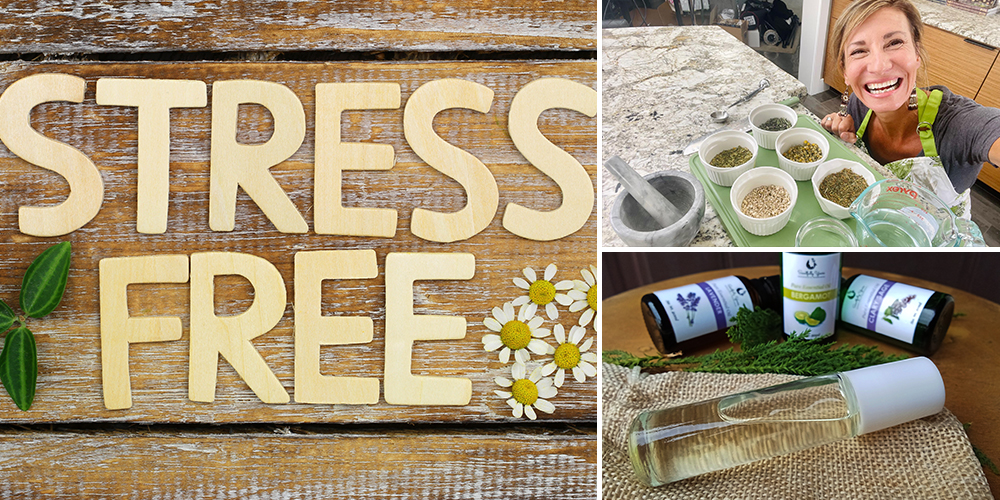
DIY Stress And Depression Relieving Oil
Every day, we thrive on varying levels of stressors that can sometimes push us deep into depression. At times, the ordeal seems to fall beyond our control. But, managing stress and depression is subjective; and often, the power over it starts with you. Stress and depression are related but not the same. Depression is the result of chronic and long-term stress or comes as a result of an illness, abuse or genetic cause. Doctors do not usually prescribe medications for stress unless they are treating an underlying illness like depression or anxiety disorder. So, here’s a DIY Stress and Depression Relieving Oil to keep in your medicinal cabinet for whenever you need it at hand.
Coping with Stress and Depression
Good stress fuels the body’s response and resilience towards challenges. It helps produce the chemical cortisol for regulating blood pressure, metabolism and immune response.
However, severe stress that raises the level of depression is bad for one’s health. The tension of the mind can make one disinterested in life, leaving it empty and meaningless. It may even impair the brain and cause unexplained memory loss.
Everyone responds to stress uniquely. That is why there is no one-size-fits-all solution to it. Doing what you think makes you feel calm and the following strategies may help:
- Avoid the triggers if possible.
- Adjust and adapt to the stressors around you.
- Set aside time for fun and relaxation.
- Give yourself some quiet, alone time.
- Spend more time in nature, or around greenspace.
- Meditate by the lake, sea, or other great view.
- Practice gratitude.
- Adopt a healthy lifestyle with a proper diet, regular exercise, and enough sleep.
- Avoid smoking and alcohol.
Good sleep is the number one enemy of overthinking and anxiety that causes stress. I struggled a long time against my swinging mood. But I was fighting with the wrong weapons. Once I took care of my sleep with natural remedies and stopped the lab-made pills, everything got better. Here’s the herbal blend that I used to treat my sleeping issues!
Managing Stress and Depression with Essential Oils
Aromatherapy and essential oils are popular in stress-reduction techniques. It came from a history of traditional use, although emerging science has yet to prove its efficacy and benefits. However, according to John Hopkins Medicine, clinical trials show promising results, especially in issues like stress, anxiety, depression, and many others.
There are many different types of essential oils. Each of them has different chemical compositions for targeting a particular symptom.
The best oils for stress and depression are:
Bergamot
A randomized crossover trial using bergamot oil concluded that it can improve sleep quality and mood and relieve psychological stress. Participants in the study were exposed to bergamot essential oil using a patch-tester and aroma spray. Results displayed significant changes in reducing psychological stress.
Bergamot (Citrus bergamia) and its essential oil are relaxants that can reduce nervous tension and relieve stress and anxiety.
Lavender
Lavender (Lavandula angustifolia) is a time-honored aromatic medicinal herb for treating sleep-related disorders. Clinical tests on humans and animals suggest different curative properties like anxiolytic, sedative, analgesic and neuroprotective properties, which are beneficial in reducing stress and neurological problems.
Lavender is popularly used in aromatherapy because of its soothing scent and active chemical constituents that calm nervous activities.
Clary Sage
Clary sage (Salvia sclarea) is a different plant from sage (Salvia officinalis) but belongs to the same family and has almost similar therapeutic effects. Clary sage, however, is milder, sweeter, and more suitable for use on sensitive skin.
It is purported to possess a magical property for its ability to nourish and uplift physically, mentally, and emotionally.
Chamomile
Chamomile (Matricaria chamomilla) is one of the most valued herbs for sleep problems because of its effective sedative properties. Chamomile is used as a tea, food supplement, tincture or essential oil for calming the nerves and relieving depression.
Chamomile acts as a mild tranquilizer and sleep inducer. A published exploratory study suggests the possibility of antidepressant properties in chamomile, which is subject to further tests and trials.
Pesticides found in chamomile fields have been compromising the quality and benefits of this wonderful herbal remedy. Due to the toxicity of these chemicals, buying chamomile from most retailers might not be worth the risk.
That’s why I decided to grow my own chamomile at home! The taste and fragrance are far superior, and knowing it’s 100% natural gives me peace of mind. It will take you a couple of weeks but it’s worth it. Here’s where you can get the seeds!
Orange
Orange essential oil exudes a sweet, citrusy scent that uplifts the mood and brings positivity and happiness. Extracted from orange peel, the orange essential oil is packed with linalool, alpha-pinene, limonene, and other compounds. These help relax the muscles, reduce stress, promote better sleep and enhance learning power.
Ylang-Ylang
Ylang-ylang essential oil is popularly used in fragrance, cosmetic and food industries. Growing studies on its health benefits paved the way for its becoming one of the most sought-after aromatic oils for medicinal use.
When used in aromatherapy, ylang-ylang (Cananga odorata) is believed to be effective in treating depression and anxiety. Sniffing ylang-ylang oil can significantly reduce blood pressure levels which helps the body fall into a deep relaxation and alleviate stress.
Frankincense
Frankincense oil (Boswellia) is extracted from the gum resin of Boswellia trees. Although not a very popular oil in the realm of aromatherapy, frankincense holds a myriad of health benefits.
Topically, it can relieve pain and muscle stiffness by improving blood circulation. It is also an excellent decongestant when inhaled. As an essential oil, frankincense acts as a sedative that stimulates the limbic system of the brain to induce mental peace, clarity, and relaxation.
Stress and Depression Oil
Internal use of herbs will always stand out as a useful remedy. Essential oils may be a great support as well. However, if you prefer a quicker fix to your stressful moments, I’d rather recommend a tincture to do the job.
Combining natural potent herbs you can relieve all your anxiety and stress in minutes. It really did the job for me. It helps your body adapt to stress and calms the nervous system. This is associated with anxiety, depression, and stress-related insomnia. Check it out HERE!
Essential oils come in an overwhelming number of options. For some people, choosing the effectiveness is one thing and considering its fragrance is another. What is nice-smelling to some may be off-putting for others.
With homemade essential oils, you have more freedom of choice to select the herbal oil that works best for you.
Here is an example of a recipe that seems to have worked for many people.
Stress and Depression Roller
In preparing a stress and depression roller, you will need a carrier oil and your choice of stress-relieving essential oils. You may choose a single oil or combine two or three to boost its effectiveness.
Carrier oils in oil preparations are plant-based oils. They usually have little to no scent and do not interfere with the therapeutic properties of essential oils. Its job is to dilute the essential oil and “carry” it into the skin for better absorption.
Some of the most popular and effective carrier oils include:
- Jojoba oil
- Sweet almond oil
- Grapeseed oil
- Argan oil
- Olive oil
- Rosehips oil
This recipe uses mildly sweet but almost odorless and non-comedogenic sweet almond oil. Non-comedogenic oils are the type of oils that do not clog the pores to prevent flare-ups of skin problems since it is used topically. Jojoba and grapeseed are also good carrier oil choices.
It also has the combined power of clary sage, bergamot and lavender to ease what ails your mind and free you from stress to prevent depression.
 Ingredients
Ingredients
- 10 drops bergamot essential oil
- 4 drops clary sage essential oil
- 4 drops lavender essential oil
- Sweet almond oil or any carrier oil of choice
- Small funnel
- 10 ml glass roller bottle
Steps
- Pour the bergamot, clary sage and lavender oil into the roller bottle. Clary sage is quite thick, you may want to use a disposable pipette to dispense it properly. Squeeze about 8 drops of clary sage oil from the pipette.

- Top off with carrier oil, leaving ample space for shaking.

- Replace the roller top and gently shake the bottle to mix well.

To use: Roll the oil on your forehead, temples, nape, or wrist. You can also rub it into your palm and cup it to your nose to inhale the scent. Do this every time you feel stressed, moody and down.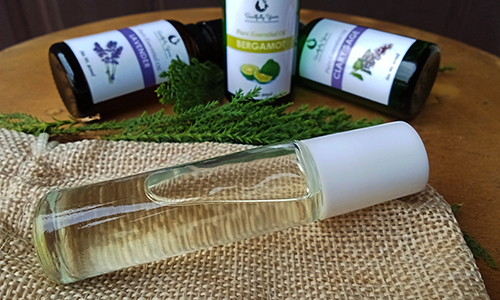
Please note that bergamot may cause photosensitivity when applied to a large skin area. Avoid staying under the sun for long if you do.
Before using the oil, do a simple patch test on a small spot on your skin to test for sensitivity. If a reaction occurs, prepare a new batch but reduce the essential oils by half. This blend has a low chance of causing an allergic reaction, but if symptoms persist, discontinue its use. Prepare a new blend and try removing one essential oil from the ingredient to see which oil you are sensitive to.

 Ingredients
Ingredients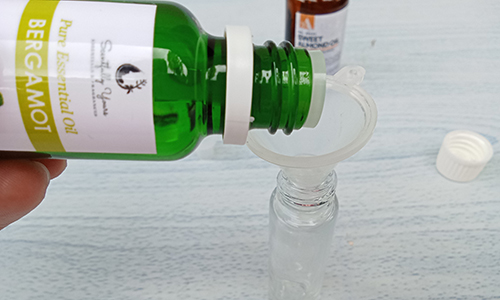
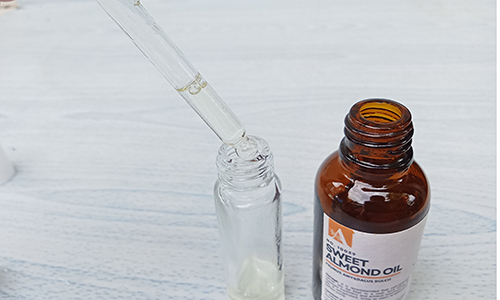
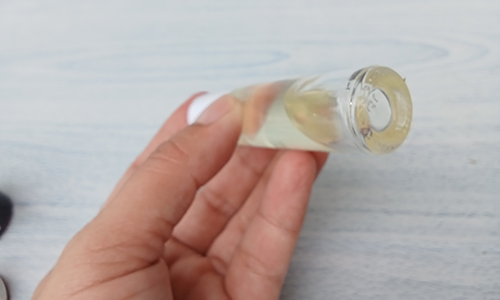
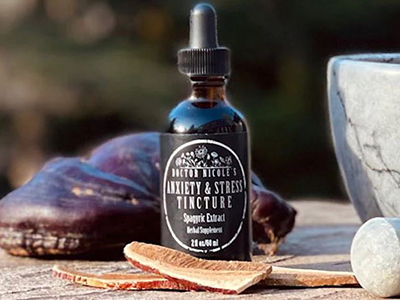
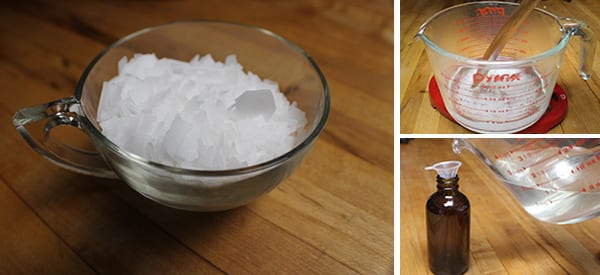
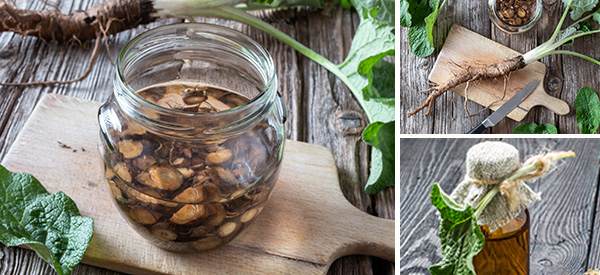
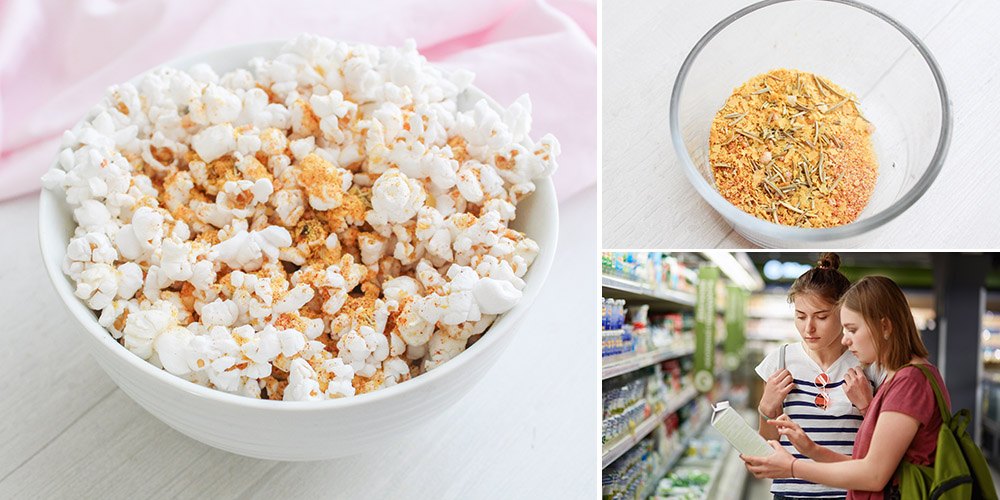
what brand of essential oils are those pictured?